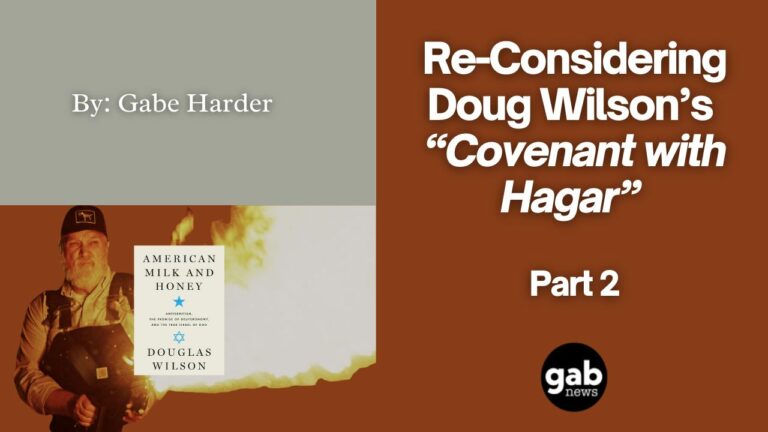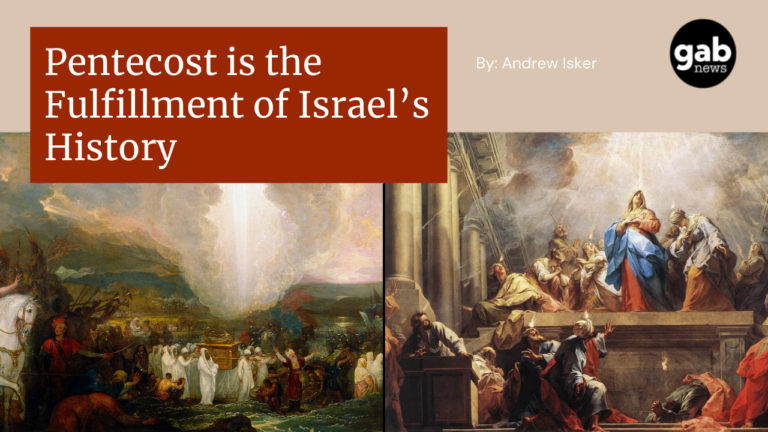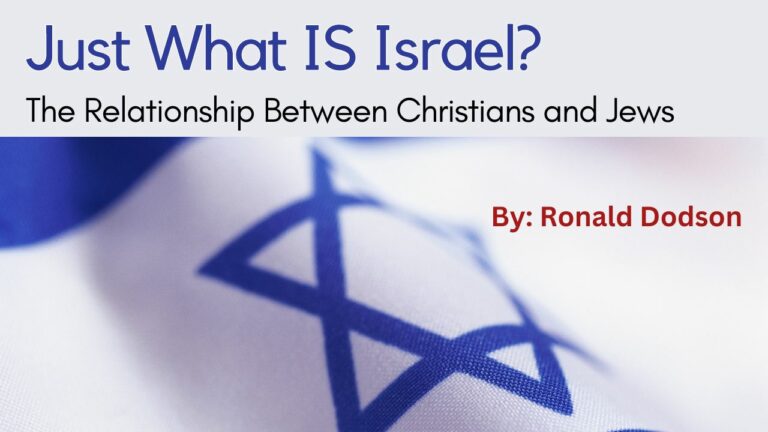Re-Considering Doug Wilson’s “Covenant with Hagar” Part 2

by Gabe Harder Defining the Covenant To this point, it should be clear that the “covenant with Hagar” is key to Wilson’s brand of soft supersessionism. What’s equally clear, however, is that this particular covenantal arrangement evades precise definition, and…





